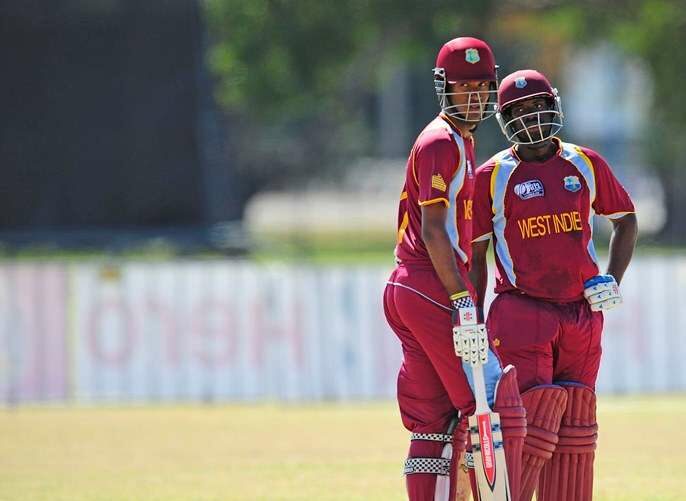By Derek Pringle
Until Tuesday, Keemo Paul was not widely known outside his native Guyana. That was the day when his ruthless ‘Mankadding’ of Zimbabwe’s Richard Ngarava caused the kind of debate that turns cricket into a moral maze and reasonable men into Judge Jeffreys.
For those not closely following the Under-19 World Cup, held in Bangladesh, Paul’s actions enabled West Indies to beat Zimbabwe in a close and crucial game to win a place in the quarter-finals. With just three runs required and six balls remaining, Paul ran out Ngarava, Zimbabwe’s No 11, while he was backing-up as the non-striker.
Having watched replays, Paul’s decision to break the wicket looks pre-meditated, as Ngarava was certainly not stealing an advantage by charging down the pitch.
Indeed, it required the close inspection of TV replays by the third umpire to rule that Ngarava was actually out, his bat grounded on the crease rather than just behind it, which would have saved him.
Rather predictably, as West Indies celebrated and Zimbabwe fulminated, the cricket world separated into those who believe the dismissal was within the Laws and should stand, and those who believe that it should have been rescinded, such behaviour having contravened the ‘Spirit of the Game’.
Personally, it would never have crossed my mind as a bowler to do such a thing, unless the non-striker had persistently been stealing several yards. In that instance, I would have warned him, at least twice. Yet had the non-striker transgressed a third time, I doubt I’d have gone through with a Mankadding – so called after India’s Vinoo Mankad twice ran out Australia’s Bill Brown for backing-up too far in 1947.
That is not to say I condemn Paul’s action as wrong, only that I have a small misgiving about his decision.
Instead of being driven by any sharp practice on Ngarava’s part, Paul did what he did in the anticipation that the batsman would leave his crease, which of course he did, but only by about half an inch.
Plainly, Paul was within his rights to break the wicket and appeal for the run-out, but only under the Laws and ICC regulations for international cricket. Under MCC’s ‘Spirit of the Game’ preamble to the Laws, Paul’s actions would have been considered morally dubious, especially as he undertook them without prior warning. Had the ‘Spirit of the Game’ held sway, West Indies U19 captain, Shimron Hetmyer, would have withdrawn the appeal and re-instated Ngarava, though that decision would have brought the distinct possibility of defeat and the end of the tournament for his team.
Given the ball is live from the moment a bowler begins his run-up, one thing about Paul’s actions is that he was certainly up to date on the wording of both the Law and ICC regulations, a rare thing among players.
Under the first, the bowler can attempt to run out the non-striker but only before he has entered his delivery stride, something Paul satisfied.
Under the second, which is slightly different, the bowler is permitted to run out the non-striker before releasing the ball and provided he has not completed his usual delivery swing – conditions he also fulfilled.
The fact many in cricket are still asking whether he was right to do so comes down to the ‘Spirit of the Game’ – a rather woolly concept in an age when players and spectators demand an accurate, binary response, often aided by technology, to sporting matters. So, is the tennis ball in or out? Is it a try or not a try? Is the batsman out or not out?
That is where the ‘Spirit of the Game’, while making cricket unique, does it few favours. Where most want certainty, something the Laws are also meant to provide, it creates ambiguity.
So, whereas Stephen Fleming once saw fit to uphold Brendon McCullum’s decision to run out Muttiah Muralitharan, after he left his ground to congratulate Kumar Sangakkara on his century before the umpire had called dead ball, Daniel Vettori, when confronted with a similar situation as New Zealand captain, took a different stance.
Citing the ‘Spirit of the Game’, Vettori recalled Paul Collingwood after McCullum ran him out for leaving his ground, again before dead ball had been called. Both batsmen were guilty of being dozy, but due to the nebulous nature of the ‘Spirit of the Game’ only one paid the price.
Suggested as a preamble to the Laws in 2000, by Colin Cowdrey and Ted Dexter, the ‘Spirit of the Game’ presumes a moral code for cricket that stems from the amateur ideals of the Victorian era, but which was never really there in the first place, as match-fixing, sledging and other sharp practices down the ages have shown. Yet, because of it, many will have responded to this latest incident by demonising Paul.
Indeed, it is bowlers who have been criticised by the moral brigade in almost all previous instances of Mankadding, which is barmy.
One only has to look beyond the sanctimony to see that it is usually the batsman who is guilty, if not always of stealing an advantage then certainly of carelessness.
The MCC is always rewriting the Laws of Cricket, and one way of removing the current stigma felt by the bowler in such circumstances is to force the non-striking batsman to remain within his ground.
With that in mind, one suggestion has been to give umpires the power to dock teams five runs should non-strikers seek an advantage by straying from the crease too early.
That way, instead of placing any moral burden on the fielding captain to ‘do the right thing’, the decision falls to the umpires.
The only thing that needs to be thrashed out by the law makers is what distance constitutes an advantage? A yard? Two? But probably not Ngarava’s half-inch.
This piece originally featured in The Cricket Paper, Friday February 5 2016















